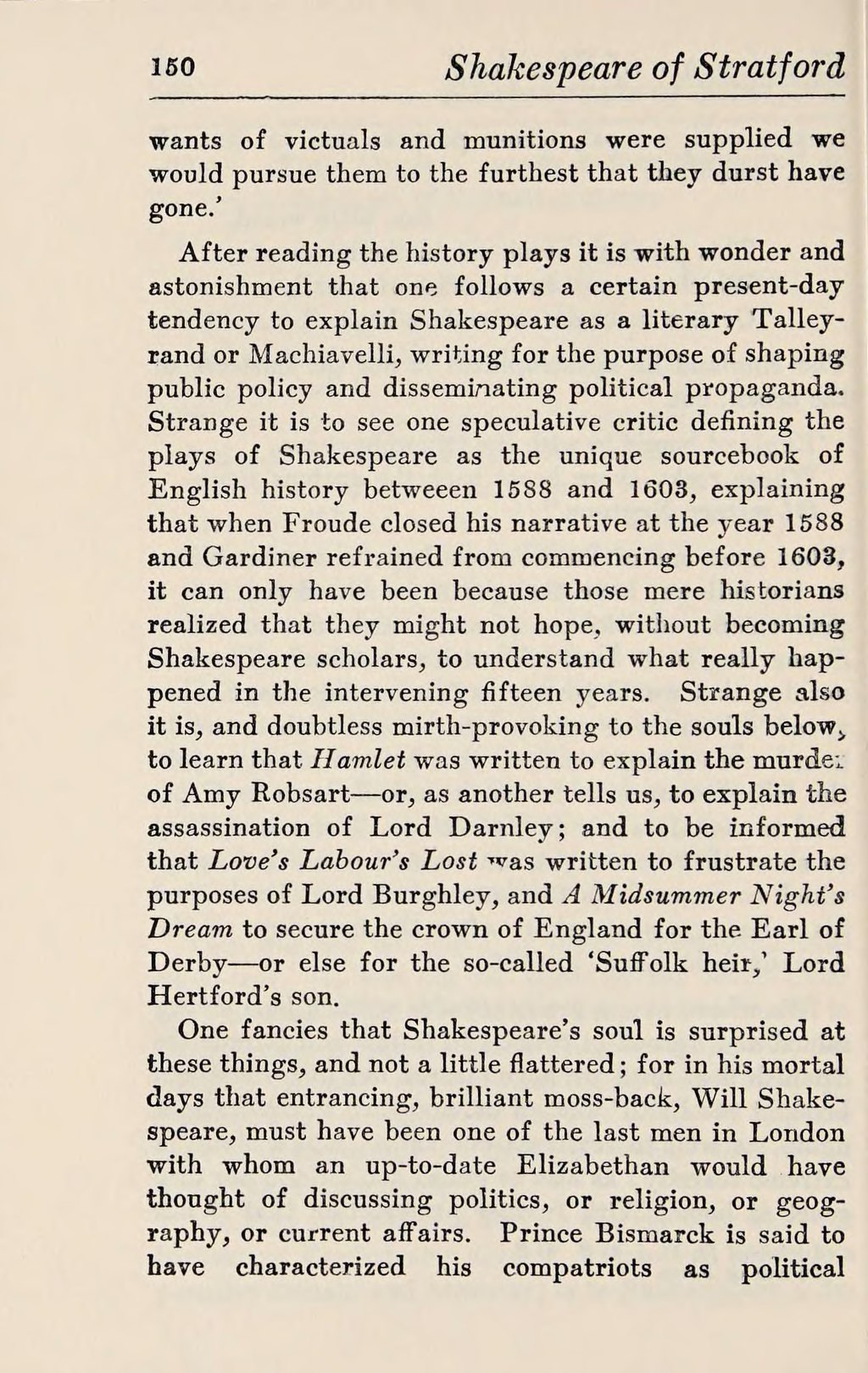wants of victuals and munitions were supplied we would pursue them to the furthest that they durst have gone.’
After reading the history plays it is with wonder and astonishment that one follows a certain present-day tendency to explain Shakespeare as a literary Talleyrand or Machiavelli, writing for the purpose of shaping public policy and disseminating political propaganda. Strange it is to see one speculative critic defining the plays of Shakespeare as the unique sourcebook of English history betweeen 1588 and 1603, explaining that when Froude closed his narrative at the year 1588 and Gardiner refrained from commencing before 1603, it can only have been because those mere historians realized that they might not hope, without becoming Shakespeare scholars, to understand what really happened in the intervening fifteen years. Strange also it is, and doubtless mirth-provoking to the souls below, to learn that Hamlet was written to explain the murder of Amy Robsart—or, as another tells us, to explain the assassination of Lord Darnley; and to be informed that Love’s Labour’s Lost was written to frustrate the purposes of Lord Burghley, and A Midsummer Night’s Dream to secure the crown of England for the Earl of Derby—or else for the so-called ‘Suffolk heir,’ Lord Hertford’s son.
One fancies that Shakespeare’s soul is surprised at these things, and not a little flattered; for in his mortal days that entrancing, brilliant moss-back, Will Shakespeare, must have been one of the last men in London with whom an up-to-date Elizabethan would have thought of discussing politics, or religion, or geography, or current affairs. Prince Bismarck is said to have characterized his compatriots as political
